Moving up the coast
As I was having breakfast by the beach the next morning, a pudgy man came along, sat himself down on my table and started talking to me. My obvious deficiency in Spanish didn’t seem to deter him, and he launched into telling me about the highlights of Muisne. One word that featured often in what he was saying was “manglares”. At first I was shocked and wondered how in the world did he guess I was from Mangalore. Later, thanks to his descriptive hand gestures, I gathered that “manglares” was Espanyol for mangroves. Apparently they were a huge attraction of Muisne. The way the guy praised them you’d think tourists from the world over flock to Muisne to check out the manglares.
The man was actually a tri-cyclo driver who wanted to show me around the island for 6 USD. So determined was he to make me a customer that I eventually gave in, and hopped onto his tri-cyclo after finishing my breakfast.
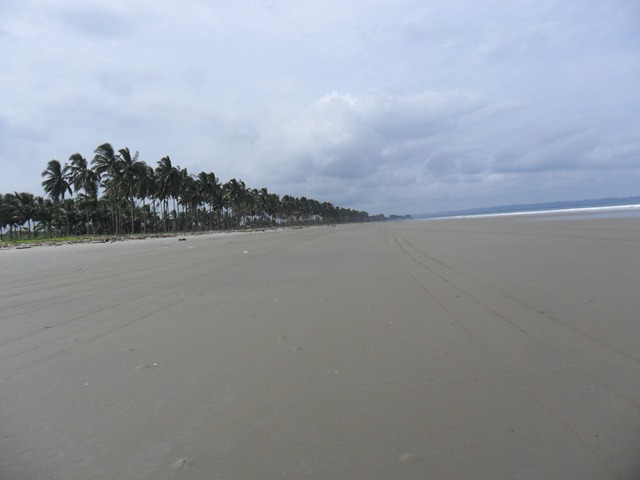
Long line of palm trees by the vast beach
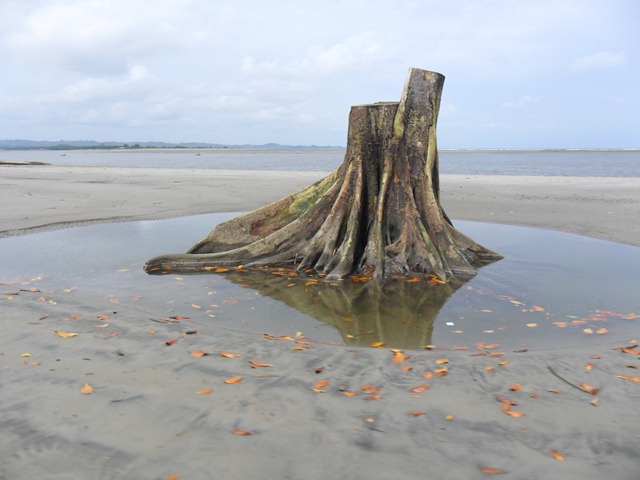
All that remains of what was probably a huge tree, a long time ago
Tri-cyclos at the Ecuadorian coast are similar to the cyclos of Vietnam. Like their South-east Asian cousins, they have the customers sitting in front while the driver sits behind. But almost all of the Ecuadorian ones are powered by a motorcycle.
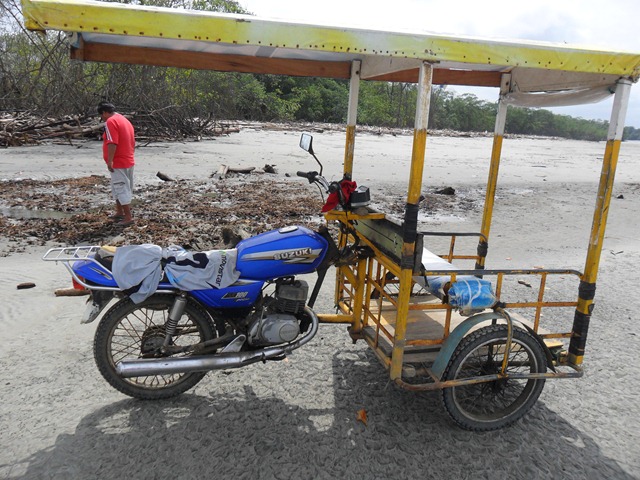
The tri-cyclo and its driver
The island tour actually turned out to be fun, although the mangroves were not quite as enchanting as I had been led to believe. The sand near the mangrove forest was unbelievably soft. Each step you took made a burrow a few inches deep. I was fascinated by the sand and was lost in playing with it when all of a sudden, my guide started running after a crab on the beach. He was a big, rather fat man and it was funny to watch him run. I only watched him for a few seconds, thinking to myself, “Hah! He has some really high hopes if he thinks he can actually catch one of them”. In hindsight, I should have given him more credit and observed him for a bit longer, because he actually managed to get hold of one!!
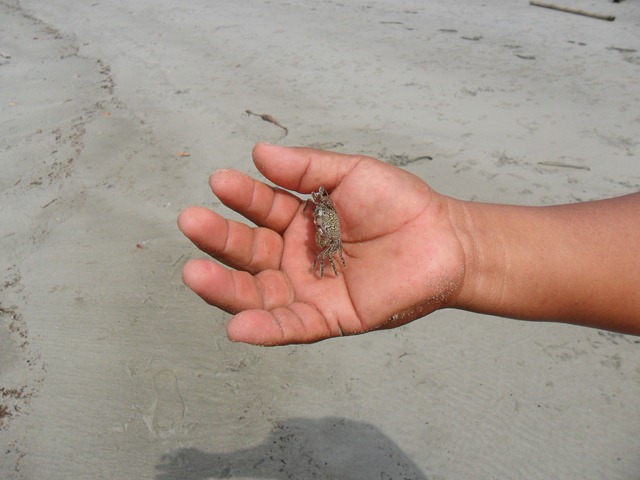
Crab
Later, I tried to catch one myself, and almost did it with barely any effort. My conclusion is that South American crabs are much easier to catch than Indian ones. In India, I cannot even come to within a foot of those nimble-footed little creatures. I’m sure there’s a reason why the Indian crabs have evolved to be much faster.
From Muisne, I went to Tonchigue and then got onto a Chivas headed to Punta Galera. There were no hostels at Punta Galera, but a man offered to let me sleep on a torn bed on his balcony for 10 USD. I managed to not laugh at his face, and politely refused the preposterous offer. But at Punta Galera, I had one of the best lunches of my South American trip so far at a small home (this was probably the home). It was the remaining extra food - of rice and lobsters - from their own lunch. I was having homemade food after a long long time, and by the end of the meal, I made sure that whoever cleaned my plate wouldn’t have to work too hard.
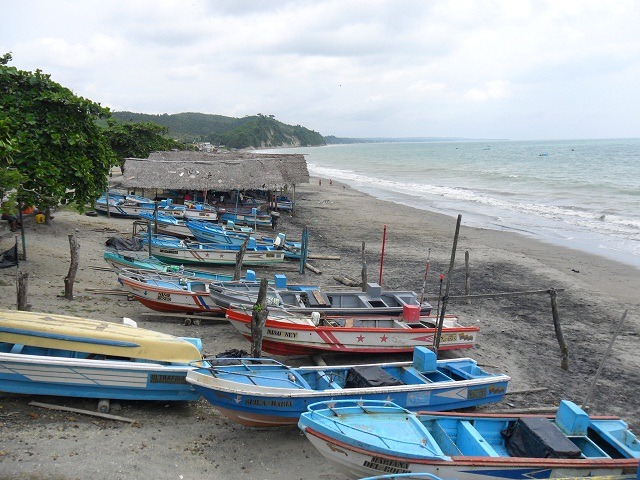
Parked boats at Tonchigue
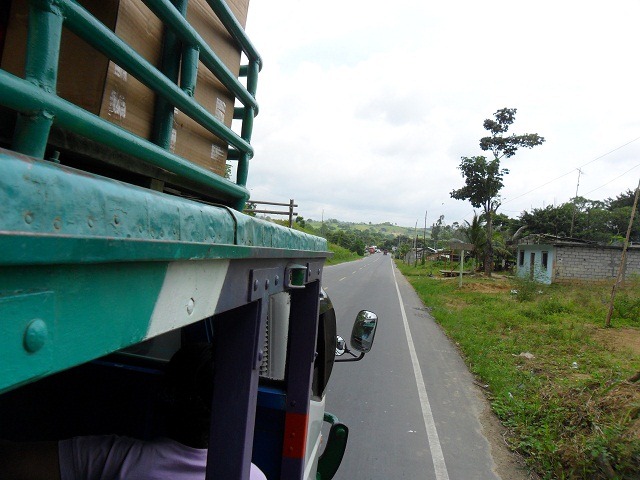
Chivas ride to Punta Galera
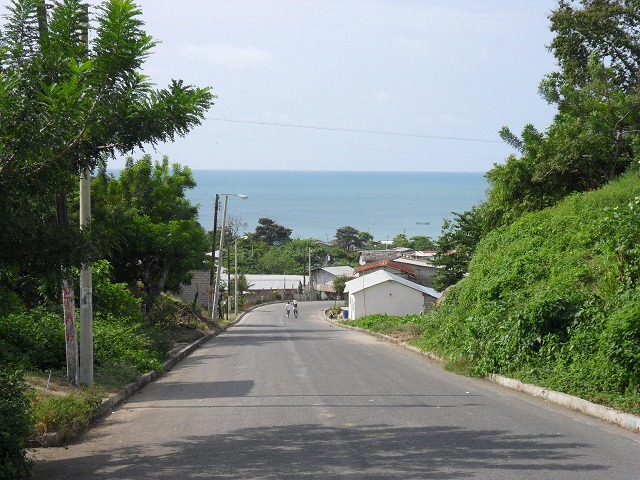
First view of the ocean at Punta Galera
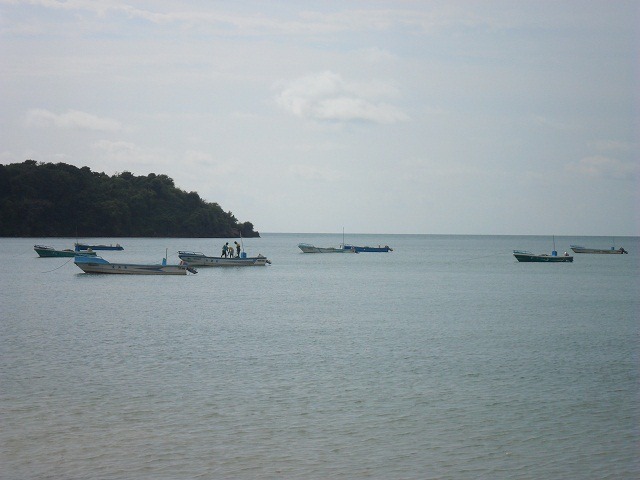
A closer look
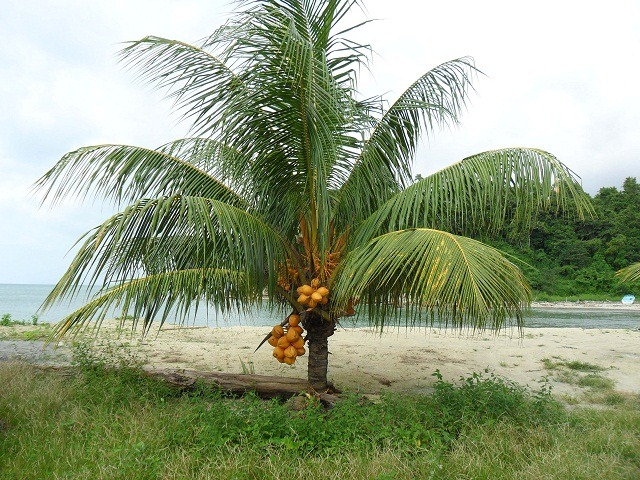
Shouldn't be too hard to pluck these coconuts
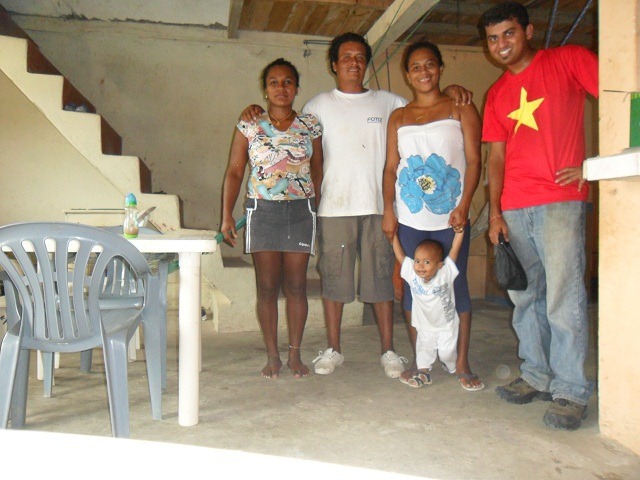
People who gave me lunch
I had initially thought I’d spend a night at Punta Galera, but with nowhere to stay, I decided to immediately head towards my next destination - Atacames. I walked to the only bus-stand around to wait for the next Chivas. The wait turned out to be a very long one. When no Chivas showed up after the better part of an hour, even the couple of local women waiting in the bus-stand with me began to despair.
Luckily, soon thereafter, a jeep stopped near the bus-stand and the man offered to give us a ride. The two women and I gladly accepted his offer and got in. As luck would have it, the man was also going to Atacames. He was transporting cheese in the jeep and the whole jeep was stinking of it. At the end of the ride, I offered to give the man some money, but he just smiled and drove off.
Atacames is a well-known party place, and every hotel I went to was packed. I was told that this is the case every weekend, and I’d have better luck finding accomodation in the nearby town of Sua. Having no other alternative, I came to Sua, which in comparison was much more relaxed and peaceful.
I found a decent place to spend the night quite easily, kept my bags in the room and went to one of many beachside bars to sip on a cocktail. It was a relaxing end to an otherwise tiring day.